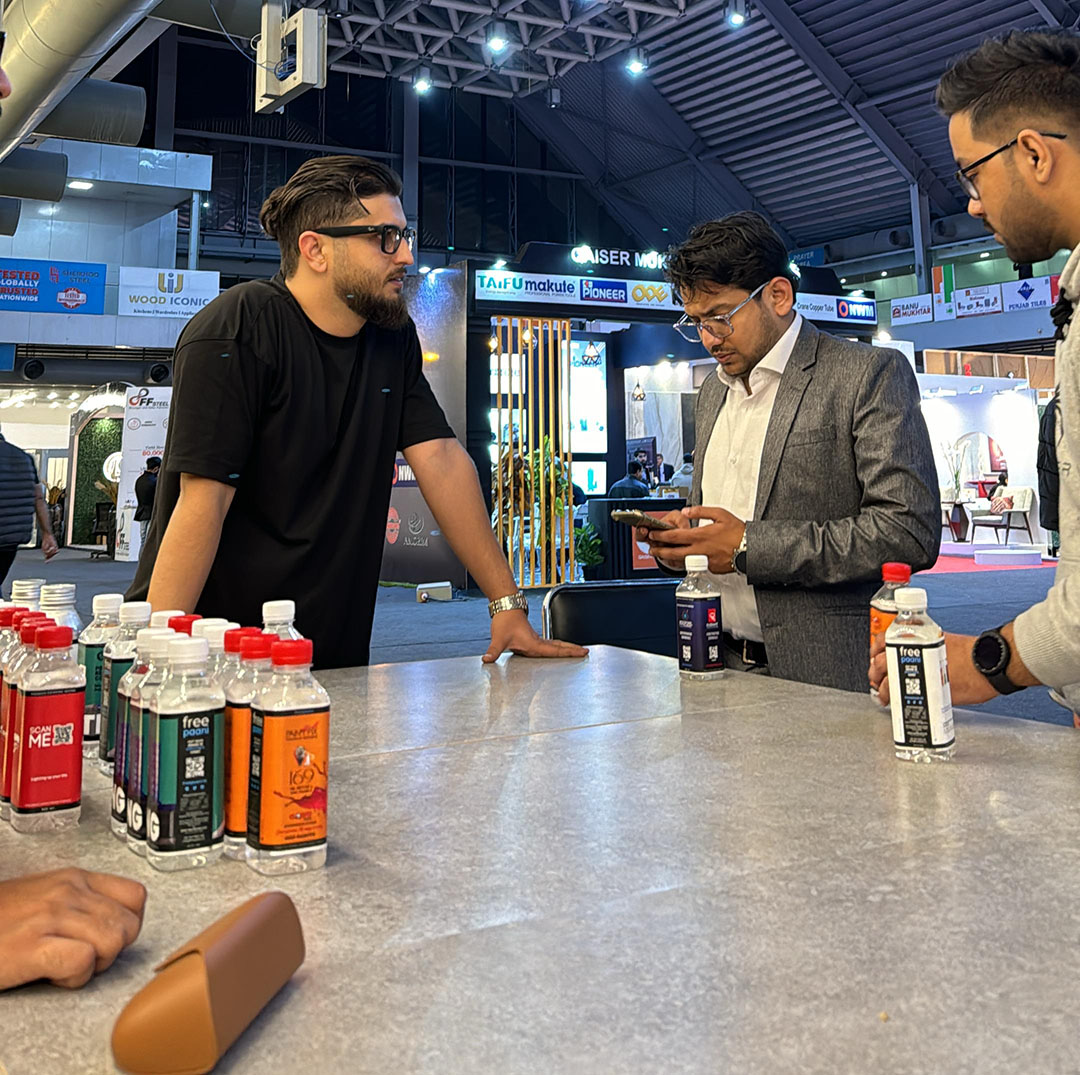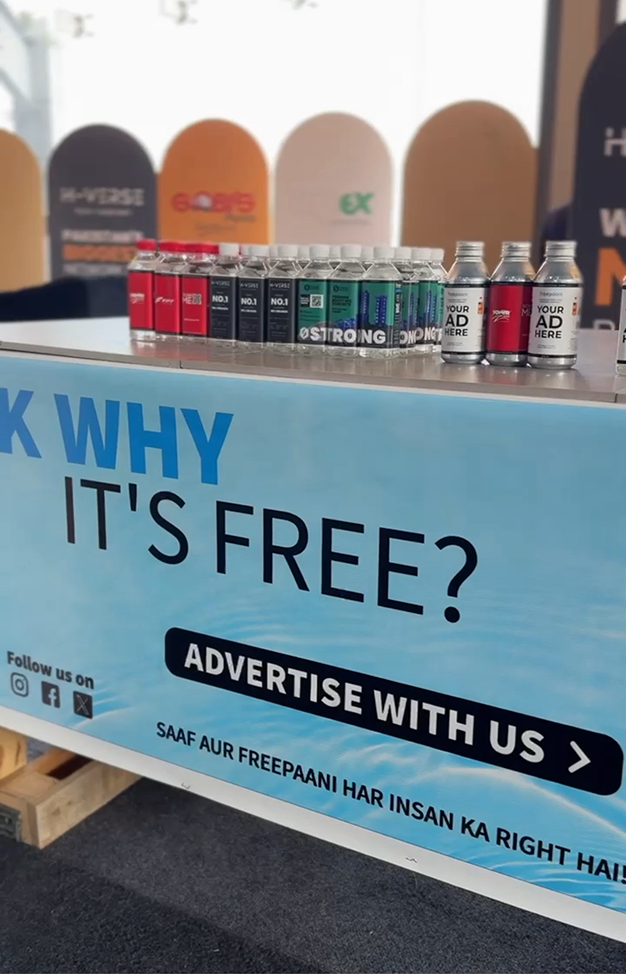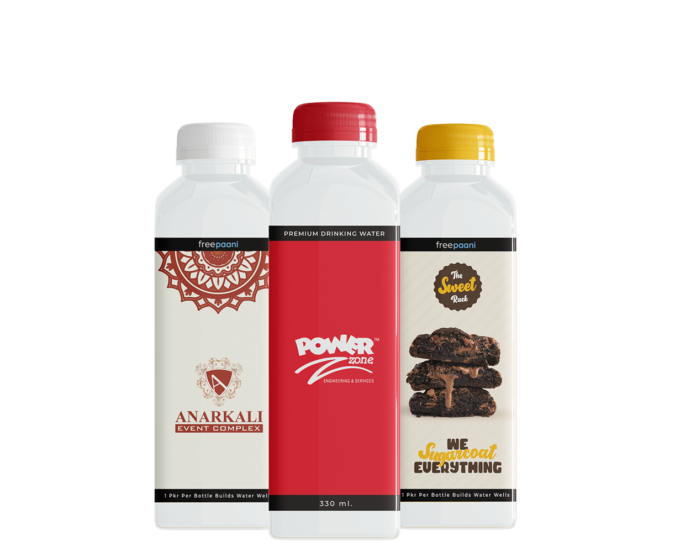Should water be free? In an ideal world – yes. Given that without access to clean, safe drinking water, humans cannot survive, it would be expected that this is a commodity that would be prioritized. And in many countries, it is prioritized, with governments investing in public water supply systems for its citizens.
But the failure of global public water supply systems, and concerns about the safety of the water provided has seen a global rise in bottled water. According to a report in Reuters, the market saw a 73% growth from 2010 to 2020, and consumption is on track to increase to 460 billion litres by 2030.
So if the future is bottled water, what’s an entrepreneur to do? In 2021, an American called Josh Cliffords started FreeWater: a Texas-based beverage company that innovatively merged a traditional beverage company and an advertising firm. Rather than selling water to consumers, FreeWater provides it for free, with advertisers covering the production and distribution costs in exchange for ad space on the packaging. This unique business model transforms the product packaging into an advertising medium, creating a hybrid between an advertising agency and a beverage company.

One Pakistani was immediately struck by this idea. Abu Bakar Siddique, a former resident of New York City, had returned to Pakistan in 2016 with a commitment to make a significant impact on the homeland. This seemed like the perfect idea: after all, Pakistan’s bottled water market stands at $327 million in 2024, and is expected to grow to $557 million in 2029.
But the decision to embark on a similar venture in Pakistan wasn’t just a business choice; it was a mission to redefine advertising and also address a fundamental societal need – access to clean drinking water.
How it works
FreePaani produces branded water bottles, utilizing them as innovative advertising mediums. The startup collaborates with various clients according to their requirements, and the client is promoted on the three ‘sides’ of the bottle. The fourth ‘side’ is FreePaani advertisement and people have the choice to add call-to-actions on the bottle. The idea is to spread visibility and increase impressions for the brand. This approach can be highly effective, surpassing traditional advertising methods. FreePaani’s fusion of water distribution, advertising, and social impact marks a pioneering venture in the market.
Operating with a hybrid team of six members handling various roles, including supply chain, accounts, procurement, legal, and sales, the startup has carved a niche by providing free water bottles to the people at various distribution points. This discreet yet effective ad space encourages customer interaction through QR codes, directing them to engage with the brand on social media or websites. All the FreePaani bottles, with three sides available for promotions, act as mobile billboards.
The Lahore-based company collaborates with Superior Natural Mineral Water, by Superior Group. The company employs a toll manufacturing approach to streamline operations and bypass licensing complexities. Toll manufacturing is when a company is hired by another company to produce specific components, products, or provide manufacturing services on behalf of the hiring company. This outsourcing model allows the hiring company to leverage the expertise, facilities, and resources of the toll manufacturer without the need to invest in its own production capabilities.
So far, the response has been positive. For instance, FreePaani distributed its branded bottles during an event at the Expo Centre in Lahore in December 2023 with 40,000 attendees. This resulted in the distribution of 12,000 bottles, achieving an impressive 95% impression rate.
Costs and distribution
Siddique highlighted the effectiveness of the free water concept, comparing it favorably to traditional advertising methods like flyers. Despite a higher upfront cost per bottle, the impressions and value derived from the free water model surpass conventional marketing tools.
He said that the cost per bottle, including advertisement, is Rs 50. However, the charges vary if the startup is hired to do the graphics as well. Clients opting for basic designs are offered a simplified fee structure depending on the expertise of the designer.
As for costs for advertisers, it varies based on quantity, with a minimum order quantity of 3000 units. The average price for 3000 units is Rs 50 per bottle, with the option for advertisers to subsidize one side of the bottle for non-competing brands. Larger orders, such as 100,000 bottles, can lead to more favorable pricing.

The cost structure varies from client to client, taking into account the number of units, designing requirements, and distribution preferences. Clients with in-house design teams can opt for template-based designs to reduce costs.
The distribution strategy strategically targets specific locations such as Model Town Park or Packages Mall, aligning with the client’s target audience and marketing goals.
The startup’s unique approach has garnered interest from various clients, including Shafi Steel, Happilac, Kale Tiles and Sika Chemicals.
Sustainability
Siddique also told Profit about the startup’s commitment to sustainability by opting for eco-friendly packaging options, including the Alumi-Tek bottle and paper cartons. This aligns with the global trend toward environmentally responsible practices, appealing to a growing market segment focused on sustainability. The company plans on launching paper cartons and aluminum variants in February 2024.
“The Alumi-Tek bottle, priced at Rs 300 per bottle, offers a durable and anti-theft capped solution lasting for a year. In comparison, plastic bottles cost Rs 50 each but can be refilled around 50 times, providing 80% effective impressions,” Abu Bakar told Profit.
Another form of packaging used by FreePaani is the Tetra-Rex, a product of Tetra-Pak, which is designed for sustainable water packaging, providing a shelf life of one year. This packaging material, sourced from China, resembles Prema’s milk box, specifically tailored for water. Abu Bakar said that the “establishment of the supply chain and machinery in Pakistan was necessary for its introduction in the country”.
The founder considers each Rs 50 water bottle not just as a free offering but as a form of charitable contribution. The company contributes an additional amount to the Customs Healthcare Charity, known for its extensive charitable work. The NGO engages in various activities, including constructing wells in Thar and collaborating with the Red Crescent during conflicts in the Middle East. Thus, turning the purchase and consumption of water into a means for consumers to indirectly donate to a cause.
The future
So what’s next for Siddique? For starters, strategic partnerships could be a game-changer. Collaborating with industries such as cricket, or political parties during significant events like elections, opens up new avenues for distribution and advertising.
“These partnerships will enhance brand visibility and also provide opportunities for increased engagement in diverse domains,” the founder said.
Another potential idea that Siddique has is the introduction of “FreeGrocery”, a platform that pays in credit to users for watching ads, creating an ecosystem where advertisers pay for user engagement and eventually establishing physical stores.
“This will allow us to gather honest data about users and the credits will enable them to get the products for free. It will allow them to make genuine choices without financial constraints,” Siddique stated.
While acknowledging the ambition of the grocery store model, he said that it will take time to implement and plans to start working on it immediately. The startup’s unique approach aligns with the global movement of providing essential products and services for free, supported by ad revenue and user data.
That being said, even though FreePaani has a unique position in the market as of now, there are potential challenges on the horizon.
Economic downturns pose a risk factor, as advertisers’ willingness to invest in such a distinctive model may be impacted. During periods of economic uncertainty, reduced advertising budgets could potentially affect FreePaani’s revenue stream, emphasizing the need for adaptability.
Resistance to change is a common challenge in the introduction of innovative approaches. Consumers and advertisers accustomed to traditional advertising methods may initially resist embracing FreePaani’s model. Overcoming this resistance and effectively educating the market about the benefits will be crucial for the sustained success of the venture.
FreePaani’s ambition to transform advertising and make a social impact is commendable, positioning it as a potential trailblazer in the industry. However, the venture’s ambitious goals may face challenges in the uncertain landscape of Pakistan. The true impact and success of this will only be revealed over time as it expands its operations.










MY PERSONAL EXPERIENCE ON LOST CRYPTO RECOVERY!
I read so many stories about bitcoin loss to scams. I will like to start by saying the agencies responsible for bitcoin security has really done nothing to help locate stolen or lost coins. In my situation my MacBook was hacked by someone that had access to my emails, i immediately contacted blockchain and they only wasted my time, after which i worked towards getting help else where, i was referred to consult a bitcoin expert who helped track and retrieved my 3.3 btc, for an agreed fee. I was more than grateful and willing to pay more after the job was done. Thankful i didn’t fall victim and would like to recommend ( MORRIS GRAY 830 @ G maiL . COM )……
Packers and movers in Karachi is best house shifting home shifting office shifting luggage moving service provider in Karachi.